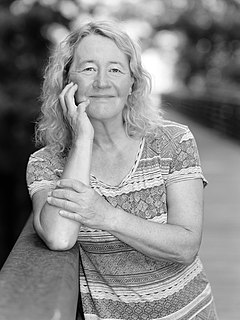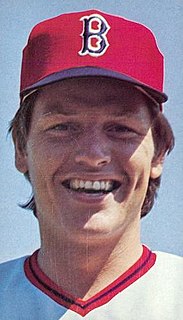A Quote by Carol W. Greider
What intrigues basic scientists like me is that anytime we do a series of experiments, there are going to be three or four new questions that come up when you think you've answered one.
Related Quotes
As someone who grew up in Europe, I don't look at TV and automatically think of a primetime network series, created by a staff of writers. I think of 90-minute movies that can break talents out or a three 90-minutes-an-episode mini series that can introduce a fantastic new series like 'The Blechtley Circle.'
We do some experiments in humans, some in mice, and there are some questions that can only be answered in nonhuman primates. It's true that you can't immediately say that those experiments will translate into human health, but nevertheless, it is obvious that having an understanding of human memory is going to be important for human health.
I'm right now wrapping up the sermon series on grace. I'd like to figure out what this next series will be in January. To do that, I'm going to come up with four or five really good ideas - at least that I think are really good ideas - and if I don't sense God really highlighting one of those, I will go to the elders of our church and my co-pastors.
Science will always raise philosophical questions like, is any scientific theory or model correct? How do we know? Are unobserved things real? etc. and it seems to me of great importance that these questions are not just left to scientists, but that there are thinkers who make it their business to think as clearly and slowly about these questions as it is possible to. Great scientists do not always make the best philosophers.
Now, everybody knows the basic erogenous zones. You got one, two, three, four, five, six, and seven. ... OK, now most guys will hit one, two, three and then go to seven and set up camp. ... You want to hit 'em all and you wanna mix 'em up. You gotta keep 'em on their toes. ... You could start out with a little one. A two. A one, two, three. A three. A five. A four. A three, two. Two. A two, four, six. Two, four, six. Four. Two. Two. Four, seven! Five, seven! Six, seven! Seven! Seven! Seven! Seven! Seven! Seven! Seven! Seven! Seven! [holds up seven fingers]
Whenever there's a red carpet event coming up my trainer in LA that I see, I always come to her like three days before and go, 'Can you make me really thin in three days?' She's always like, 'If you come to me consistently all throughout the year, then yes I can. When you come to me with three days and ask to lose 10 pounds it's just not going to happen.' I'm like, 'Do your best. Please. Make me skinny.'
Exploration, of course, is going to new places, but I don't think we go to new places just solely to say: "Well, we've been there," and come back, interesting though it may be. To me, each time we go farther into space we should use that to do basic research - basic research that can't be done before you go there.
I think it's science and physics are just starting to learn from all these experiments. These experiments have been carried out hundreds and hundreds of times in all sorts of ways that no physicist really questions the end point. I think that these experiments are very clearly telling us that consciousness is limitless and the ultimate reality.





































